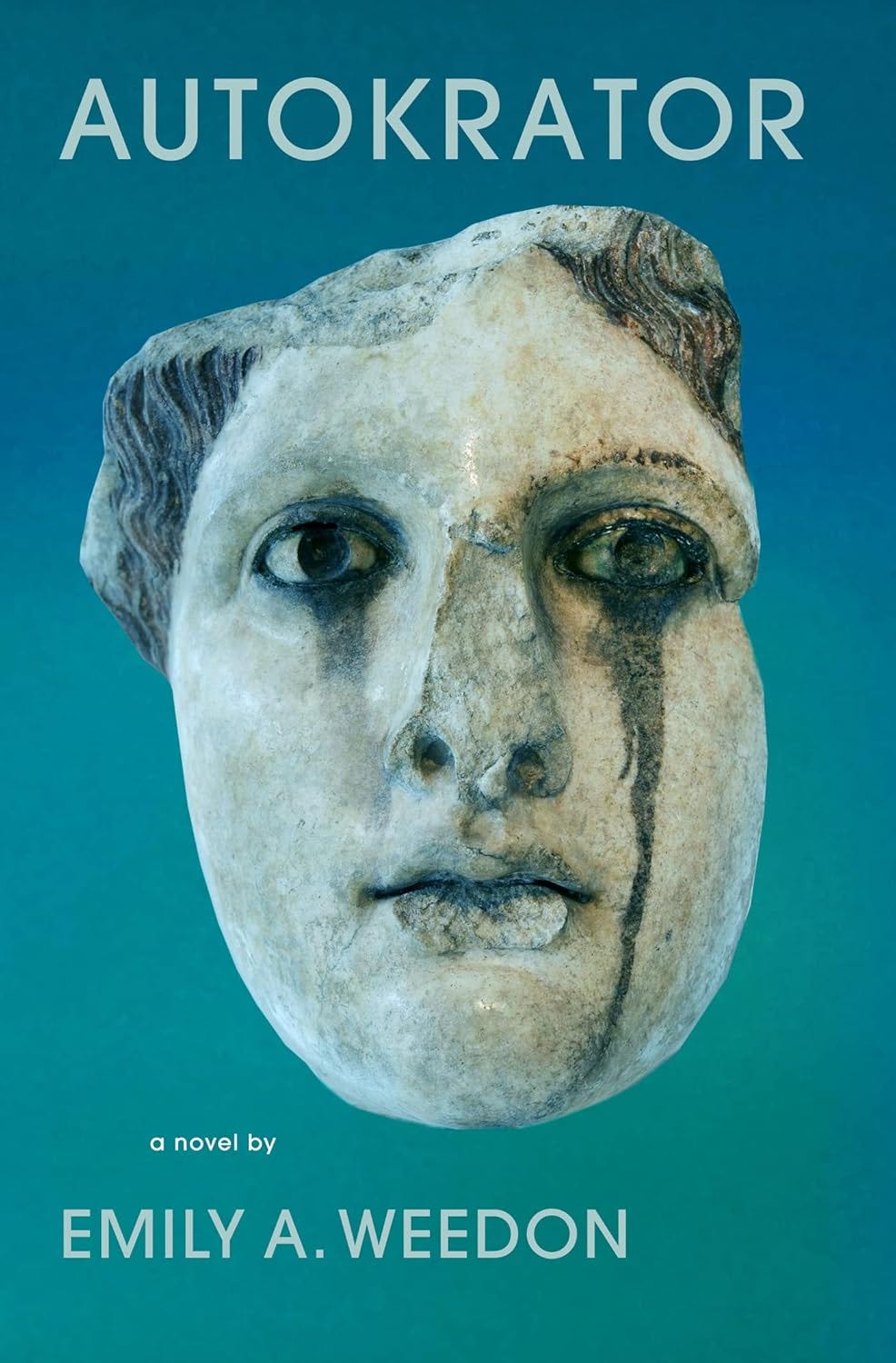Autokrator by Emily A. Weedon
A Fiction Review by Lisa Timpf
After reading some novels, I’ve found myself wishing life might imitate art. Then there are other books for which the reverse holds true. Autokrator, by Emily A. Weedon, is one of the latter.
Autokrator portrays a world ruled by Males. Females are referred to as “Unmales,” marking their lesser status. Unmales have been relegated to the sidelines, where they perform the less glamorous tasks required to keep society going, and they live underground when their duties do not require them to visit the world Above.
Autokrator’s story is told from the viewpoints of two characters, Tiresius and Cera. Tiresius is an Unmale who, through subterfuge, opportunism, and a dash of audacity, has successfully passed herself off as a Male for years. Not content merely to enjoy the privileges of this deception, Tiresius has climbed through the ranks of the Autokracy, ultimately becoming the Imperial Treasurer, a position that carries great power.
Cera, on the other hand, is a female labourer, albeit a special one: she has borne a son who is in the line of succession to become the Autokrator, or supreme ruler, in the future. Due to the strictures of the society Weedon has imagined, Cera has been denied access to her son—children are wrestled away from their mothers as a matter of procedure, a point which pains Cera. Her desire to spend time with her son sets her on a risky path.
“One of the appeals of Weedon’s book is the world-building.”
In Autokrator, most Males accept the privileges granted them as a result of their gender as their due right. A few Males respect Unmales and seek authentic relationships, but they do so covertly because there’s a danger of being caught. Offsetting the few open-minded Males are the members of the extremist Fallos cult, who yearn for an even more repressive regime.
One of the appeals of Weedon’s book is the world-building. Weedon has imagined, and convincingly describes, a complex political and social structure, the less-than-optimal living and working conditions endured by the Unmales, and so on. I enjoyed some of Weedon’s little touches, like the existence of “Hedgerow Mams,” older women who seek to teach the younger ones forbidden skills like reading and numeracy.
Weedon’s description of the way the Autokrator’s successors are treated, like much of the book, is sharply satirical. The Autokrator’s immediate successor (and son) is called the “Consort,” and forced to dress in “women’s weeds” to remind him of his subservient status. The Kratorling (the son of the Consort) is unveiled at a special ceremony in which he emerges from his father’s skirts, which is meant to suggest that he was created without the involvement of Unmales.
There are some—including the current Autokrator—who aspire to create a reproduction process that enables just that. However, the society portrayed in the novel is not technically advanced in the sense that ours is, making the research efforts rather crude.
Because of society’s dismissal of Unmales as irrelevant and inferior, women endure some brutal treatment, which doesn’t make for uplifting reading. At the same time, Weedon does a nice job of building tension and creating a sense of mystery. I found myself caught up in the plot, interested to see how everything would shake out. Autokrator provides food for thought, while at the same time highlighting the potential long-term impact of the erosion of rights.
About the Author
Emily A. Weedon is a debut author and an award-winning screenwriter. She co-created the series Chateau Laurier, the most-awarded web series in the world in 2023. She and co-writer Kent Staines were awarded Best Writing in a Web Series at the Canadian Screen Awards that same year. Emily has been a graphic designer, musician, set painter, and art director. She played music professionally and has released three EPs. She lives in Toronto, Ontario, with her daughter, Ginger.
About the Reviewer
Lisa Timpf is a retired HR and communications professional who lives in Simcoe, Ontario. Her poetry, fiction, creative nonfiction, and book reviews have appeared in New Myths, Star*Line, The Future Fire, and other venues. Lisa’s speculative haibun collection, In Days to Come, is available from Hiraeth Publishing. You can find out more about Lisa’s writing and artwork at http://lisatimpf.blogspot.com/
.
Book Details
Publisher : Cormorant Books (April 13 2024)
Language : English
Paperback : 384 pages
ISBN-10 : 177086685X
ISBN-13 : 978-1770866850




Adding to my list!!
This sounds intriguing, great review, Lisa. Might have to add this to my list!